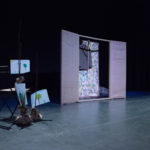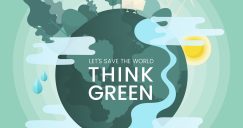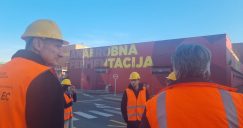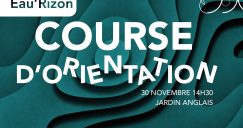Planting the seeds of change: How theatre and imagination empower young climate heroes
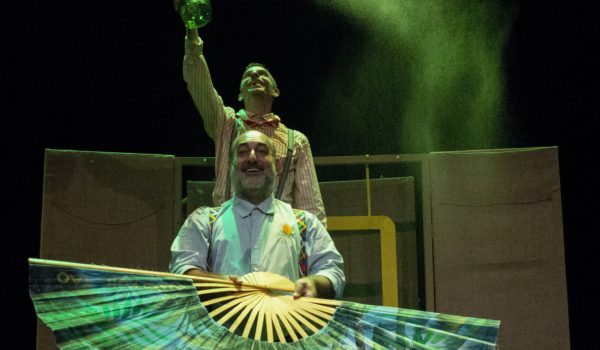
- Article, Greece, News
What if a theatre performance could inspire children to reimagine their role in the fight against climate change, not just as spectators, but as heroes?
This question sparked LATRA’s initiative within the LEVERS project: a creative, immersive learning experience centred around the theatrical performance “A Great Man”. Designed for primary school children aged 5–11, this performance is much more than a show, it’s a call to action.
Turning schools into ecosystems of climate action
At the heart of LATRA’s Learning Venture lies the mission to create a learning ecosystem that empowers students, teachers, and school leaders to become agents of change, transforming their schools into carbon-neutral environments. LATRA’s approach taps into the emotional and cognitive power of storytelling and theatre to make this mission tangible and accessible to young learners.
In “A Great Man”, children meet a character who brings a forest to life, tree by tree. But this forest isn’t built alone. In a symbolic and interactive twist, each child is invited to contribute their own drawing of an ideal natural environment before attending the show. These drawings are hidden on stage by the actors and revealed during the play’s climax, transforming into the forest the protagonist has grown. The children, seeing their own art become part of the story, recognize themselves in the hero, and realize they can be heroes too.
From applause to action: Growing change together
Instead of ending with applause, the performance leads directly into action. Guided by the actors, the children plant seeds of edible herbs, like parsley, dill, and arugula, in small pouches they can take home or grow in their classrooms. This seamless transition from imaginative experience to real-world action makes sustainability personal, joyful, and deeply meaningful.
This initiative began in September 2024 in Lesvos and has already reached schools in Athens. The growing interest from teachers, parent associations, and local communities reflects a genuine need for engaging, transformative climate education.
Community-driven, emotionally resonant, and scalable
What makes this approach unique is its emotional and participatory nature. The performance invites not just children, but educators, parents, and even companies to co-create a future rooted in care, sustainability, and imagination. It aligns beautifully with LEVERS’ vision of community-rooted learning ventures and serves as a replicable model that can travel across schools and regions.
Why it matters for LEVERS
As LEVERS continues to explore innovative pathways to climate justice, LATRA’s initiative stands as a testament to how artistic expression can foster environmental consciousness, intergenerational dialogue, and systemic change from the ground up. It shows us that climate justice isn’t only about policies and plans, it’s about planting hope, one child and one seed at a time.


